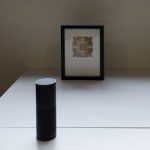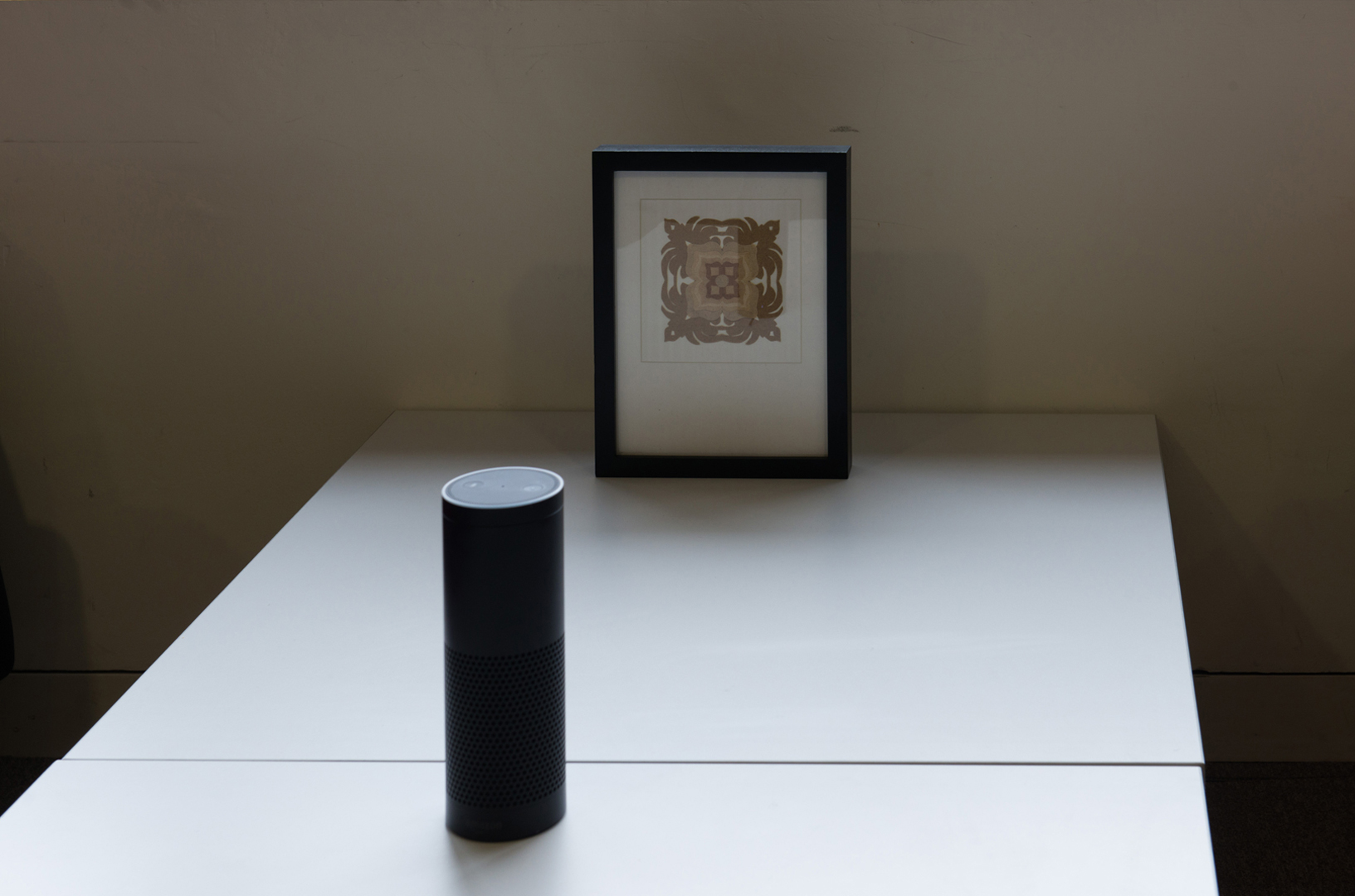“The Listeners” by John Cayley
Title:
- The Listeners
Artist(s) and People Involved:
- John Cayley
-
- Brown University
Exhibiting Artist(s):
Symposium:
Venue(s):
Creation Year:
- 2015-2016
Medium:
- Performative interaction with transactive syntactic language; custom software; installation
Artist Statement:
The Listeners is an installation and linguistic performance – enacted by visitors with an Amazon Echo. The Echo embodies a voice-transactive Artificial Intelligence and domestic robot, that is named for its wake-word, Alexa. The Listeners is a custom software ‘skill’ built on top of this infrastructure. The Listeners have their own ‘interaction model.’ They listen and speak in their own way – as designed and scripted by the artist – using the distributed, cloudbased voice recognition and synthetic speech of Alexa and her services.
John Cayley introduces The Listeners and addresses certain contexts and circumstances surrounding The Listeners and the voice-transactive infrastructure on which they are built. Cayley believes that transactive synthetic language will reconfigure practices of language generally, including the arts of language, and that it will encourage the emergence of an aurature – practices of aesthetic languagemaking characterized by the fact that their artifacts exist – both archivally and in-the-moment – supported by aurality rather than by visuality: rather than by graphics, typography, and print, as literature. Cayley’s talk will also touch on related issues and circumstances which are critical for our current historical moment.
Transactive synthetic language and its art has statements to make about synthetic language and human embodiment; the robot imaginary; identity, integral embodied identity, and new modes of being; the voice and individuality; the ‘neutral’ voice; the inner voice; the voice of reading; artificial intelligence and identified artificial intelligences (AIs); network services and personhood; network services, AIs, and surveillance; artificial intelligence, AIs, and social relations; network services, AIs, and privacy; the ‘smart’ home; transactive synthetic language and domotics; the terms, control, and ownership of network services and their artifacts; the future of reading; the future of literature; the future of the archive as language. It is difficult to exaggerate the consequences of the developments that make The Listeners possible for the art of language and also for political economy and culture as a whole.
Website:
Video:
Category:
All Works by the Artist(s) in This Archive:
- John Cayley
- More Art Events from John Cayley in this archive:

The Listeners
[ ISEA2016]
Read For Us… And Show Us The Pict...
[ ISEA2015]





